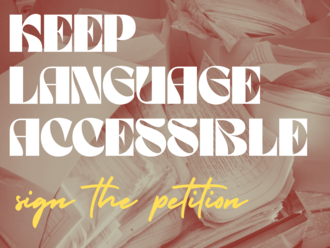-
Save NCEA - Strengthen, Don’t Replace it!There has been little genuine consultation with schools, whānau, or iwi about what is a major change to what and how we assess. Any changes of this scale needs to be informed by the diverse communities that our education system serves. NCEA is not perfect - but it has proven strengths, flexibility, and the ability to serve all learners across diverse pathways, whether academic, vocational, or community-based. Instead of scrapping it, we call on the Government to work alongside educators, students, whānau, and industry to strengthen NCEA through curriculum alignment, a standards review, and genuine co-design. Replacing NCEA risks: • Disadvantaging Māori, Pasifika, neurodivergent learners, migrants, second language learners, and those from lower socio-economic backgrounds. This has been cited in cabinet papers about the proposal as a likely outcome if NCEA is replaced. • Narrowing subject choice, creative course design and limiting pathways for students, whether they are university-bound or not, the proposed changes fail to recognise the benefit of a wide range of subjects and assessment opportunities designed to meet the needs and interests of a wide range of learners. • Reverting to an increased focus on external assessment and exams will have an impact on flexible course design and may negatively impact student wellbeing. We must retain flexibility about how we assess our young people. • A shift to letter grades and percentages which is a regression to outdated, hierarchical models that will likely lead to scaling, bell curves and league tables. • More young people will leave school without a meaningful formal qualification. Retaining Level One NCEA as an optional certificate ensures we can meet the needs of more learners. We believe New Zealand needs an inclusive, future-focused qualification system that values all learners because that is how we build a connected, productive, and ambitious society. That system is NCEA – and it can be strengthened. Replacing it puts all those things at risk. Together, let’s protect NCEA and ensure our qualification system continues to serve every learner in Aotearoa. Please sign this petition so we can make sure NCEA remains and that we focus on strengthening rather than scrapping our national assessment framework. 📢 We also encourage you to have your say by completing the official consultation survey before 15 September 2025: https://www.education.govt.nz/consultation-ncea About Aotearoa Educators Collective Aotearoa Educators Collective is an umbrella collective created to support education thought leaders who share a common interest in promoting progressive ideals in education. The group includes academics, principals and teachers and is not aligned to any political party. https://www.aec.org.nz/7,369 of 8,000 SignaturesCreated by Aotearoa Educators Collective

-
Stop Failing our Māmā: Improve Perinatal Mental Health Services in AotearoaWith the repealing and replacing of the Mental Health Act currently taking place, now is the time to get this important issue in front of decision makers to ensure provisions are in place in the new legislation to ensure better outcomes for mothers who suffer from a perinatal mental illness. ⚠️ The Issues: • Capability of perinatal mental health services. Currently, there is a significant shortage of resources, leading to a reactive, crisis-driven approach where individuals often only receive help when they are in urgent need, much like an 'ambulance at the bottom of the cliff' response. This results in many not getting the proactive and voluntary care they require until it's too late, and thus results in compulsory treatment orders, or worst case scenario, tragic outcomes. • Lack of Specialised Care: Current mental health services are insufficiently equipped to support postpartum women, particularly in general psychiatric wards that fail to address the specific needs of mothers. • Trauma of Separation: The separation of mothers from their newborn babies during such a vulnerable time is profoundly damaging to both the mother and the child, exacerbating mental health struggles and hindering recovery. • Need for Accessible Mother and Baby Units: There is an urgent need for mother and baby units that are accessible to all women (including in the regional areas) that would allow mothers experiencing postpartum mental illness to receive the care they need while remaining with their infants, promoting healing and the vital mother-child bond. 💬 Why is this issue important to me? In 2022, after a complicated pregnancy and birth, I unfortunately developed an acute postpartum mental illness. Despite seeking help voluntarily (which included a declined referral to Maternal Mental Health whilst pregnant, requests for support while becoming unwell in hospital postpartum, and two subsequent visits to the Emergency Department where I was sent home), I was eventually sectioned under the Mental Health Act (1992), and separated from my son just three weeks postpartum. I was placed in the general psychiatric ward in Tauranga, a space that was terrifying, unsafe, and not suitable for a new mother experiencing a postpartum mental illness and recovering from childbirth. The experience left me traumatised, with symptoms of PTSD and severe depression for the first two years of my son’s life. Through my advocacy, I’ve since learned that many others have faced similar trauma due to systemic gaps in perinatal mental healthcare. The lack of specialised support has long-lasting impacts, not only on the mother and baby, but also fathers, and the wider whānau. In 2023, around the time of my son’s first birthday, I wrote to the hospital and public health services to genuinely engage about the issues I faced and suggest areas for improvement. My concerns were dismissed. This led to a decline in my mental health and forced me to step back. But in 2024, I read about the Mental Health Bill (the legislative reform of our Mental Health Act) in the Mental Health Foundation’s newsletter – and decided that this was the right time to speak out, while the issue was on the agenda for decision-makers. I made a written submission on the Mental Health Bill in December 2024, and delivered an oral submission to the Health Committee in February 2025. In May, I started an advocacy page on Instagram called @actionformamas. This is where I raise awareness and share content to help break the stigma of perinatal mental illness, including postpartum psychosis, which is a terrifying yet highly treatable perinatal mental illness that carries a lot of stigma and shame. This illness is what I experienced after the birth of my son. ✅ The Solutions • Provide proactive, compassionate, culturally appropriate, and specialist care for women who experience severe perinatal mental illness • Prevent traumatic separations, supporting recovery and bonding between māmā and pēpi • Ensure appropriate and sufficient services are in place to improve mental health outcomes for whānau across Aotearoa By improving perinatal mental health services and funding dedicated mother and baby units, we can ensure that no mother is forced to endure the traumatic separation from their newborn or face inadequate care in a general psychiatric ward. This is essential for the well-being of both mothers and their babies, and it is a necessary step in improving mental health care for all New Zealanders. ✍️ Add your name to support this change. Together, we can stop the trauma and start healing. No māmā should be left behind.1,737 of 2,000 SignaturesCreated by Kristy Maguire
-
Fair Pay and Better Conditions for Aotearoa's Teachers: An Investment in Our FutureTo value our teachers, we must first understand the immense scope of their role. Every day, they are so much more than just educators. They are: • Mentors and Role Models, guiding students through critical stages of their personal and academic development. • Counsellors and Mental Health First Responders, providing a safe space and crucial support for students facing anxiety, stress, and hardship. • Innovators, constantly adapting their teaching methods to cater to diverse learning needs, including those of students with disabilities and learning challenges. • Mediators, skillfully resolving conflicts and teaching students vital social and emotional skills. • Community Liaisons, bridging the gap between school and home, and working closely with whānau to support student success. • Administrators, managing extensive record-keeping, assessment, and reporting requirements, often outside of teaching hours. This immense emotional and administrative labour is performed on top of their core responsibility: to plan and deliver a world-class education. Why Teachers are Essential for Future Generations: Well-supported, fairly compensated, and respected teachers are the foundation of a thriving society. They are directly responsible for cultivating the skills and values our country will need to succeed in the 21st century. • They build a skilled workforce, preparing students for the jobs of tomorrow and driving our economic growth. • They foster critical thinkers and engaged citizens, which are essential for a healthy and robust democracy. • They nurture resilient and empathetic individuals, creating stronger, safer, and more connected communities. When we support our teachers, we are supporting our children and paving the way for a better future for Aotearoa. Please sign and share this petition, together, we can make a difference and ensure better working conditions for our teachers and school staff.60 of 100 SignaturesCreated by Valerie McKernan
-
Stop the Government taking away Outdoor EducationOutdoor Education gives young people opportunities they can’t always get in a classroom. It builds resilience, confidence, leadership, teamwork, and problem-solving skills. It keeps students engaged in school, especially those who struggle in traditional settings, and connects them with Aotearoa’s unique environment, culture, and outdoor heritage. These are life skills that benefit every student, no matter their future pathway. But the Ministry of Education has indicated that Outdoor Education will not be on the new subject list of senior subjects. This means it won’t be recognised as a general subject and will have no Ministry-developed curriculum, assessments, or resources. Instead, it would be reduced to a narrow vocational option, controlled by a national skills body that has not yet been established. Schools would lose the flexibility to design courses that reflect their local environment and community, and some may stop offering Outdoor Education altogether. Losing recognition at this level strips Outdoor Education of its academic value, limits what schools can offer, and removes a subject that not only supports careers in tourism, recreation, and conservation but also grows the confidence and well-being of our young people. The NCEA proposed changes are open for submissions until the 15th September, so we are working to a short deadline. Please sign this petition so we can make sure Outdoor Education remains a valued subject that changes lives and strengthens our future.54,170 of 75,000 SignaturesCreated by Education Outdoors New Zealand
-
Hands Off NorthTec - Our People, Our Place, Our Future!Education is essential to our community’s future. Everyone who wants to increase knowledge and skills should have the opportunity to learn. NorthTec isn't just a campus, this is the heart of our region, upskilling in tertiary and vocational education in Te Tai Tokerau. NorthTec is Under Threat - Te Tai Tokerau Needs Your Voice! NorthTec was built to serve our people, but now our future is on the line. If proposed cuts go ahead, we risk losing: • Teachers/Kaiako - the heart of our classrooms • Librarians - keeping knowledge alive • The Student Café - a hub for connection • Student Voice - silencing the voices of ākonga • Student Support Services - academic and pastoral • Disability + Health Services • Administration and support services (ICT, Marketing, Enrollments, Registrar, Business) • Academic Programmes - admin coordination are the heart of front line delivery • Regional Campuses must stay open with support services • International Students These proposed cuts will isolate learners, strip away support and threaten the mana of vocational education in Te Tai Tokerau. Sign now, share this amongst whanau and friends and stand with us here at NorthTec/Te Pūkenga. Your signature adds strength to our movement, join us.460 of 500 SignaturesCreated by Student Voice
-
Keep building state housing in Tai TokerauEveryone in our community deserves to be housed. People should have agency over their housing, and it should be designed to be fully accessible and based on how people want to live. This would strengthen our communities, make life easier for whānau and provide the stability needed for a thriving city. But successive governments have not done enough to make sure everyone in our community has a suitable housing. Now, the National-led Government plan to sell off state housing and make it less available to our communities. This will lead to more people living in unaffordable and unsuitable private rentals, in their cars and on the streets. It also means that state-owned land will be privatised that should otherwise be returned to hapū and iwi for Māori housing solutions. In Tai Tokerau we have: - 1000+ households on the Housing Register - 5856+ people experiencing Severe Housing Deprivation (homelessness) *Census 2023 (grown since data was collected) - Kāinga Ora is selling 59 homes to the private market - And still, this National government has decided to cancel 40 developments, 450 homes that were in the pipeline, that would've housed whānau in need in Tai Tokerau[1] We know from our own history and from overseas, that when governments play a bigger role in building and providing decent and suitable housing, we lay the foundation for thriving communities. We have built state housing at scale as a solution before, and we can do it again. We are calling on Minister for Housing, Chris Bishop; Minister for Māori Development, Tama Potaka; MP for Whangārei, Shane Reti; and MP for Northland, Grant McCallum to advocate for the people of our communities to ensure that everyone has a decent, stable and accessible home, and to stop the sell off. References: 1. Critical housing shortage: Kāinga Ora axes 40 new Northland projects. Northern Advocate, 12 July 2025445 of 500 SignaturesCreated by State Housing Action Whangārei
-
Ban Fossil Fuel Ads and Sponsorships in Aotearoa.Fossil fuels are the biggest driver of climate change—and just like tobacco, they’re harming our health, our environment, and our future. Yet fossil fuel companies continue to run ads and sponsorships that mislead the public and delay climate action. It’s time to stop the greenwashing. Just as Aotearoa once led the world in banning tobacco advertising, we must now ban fossil fuel ads and sponsorships. Other countries like France, the Netherlands, and the UK are already doing it. Local councils in Australia have joined in too[1]. Here in Aotearoa, companies like Z Energy are under fire for deceptive climate marketing[2]. We can’t allow fossil fuel giants to shape the public narrative while continuing to pollute. We urge you to support a national ban on fossil fuel advertising and sponsorships. Join us in building a safer, healthier, climate-resilient Aotearoa. Please sign the petition and share it with your friends and family References [1] fossiladban.org/learn/ [2] www.consumer.org.nz/articles/z-energy-continues-the-business-of-greenwashing-as-its-emissions-rise322 of 400 SignaturesCreated by Comms Declare
-
Fix Auckland's Traffic!Why is this important? Auckland should be a city built for people, not for cars - no matter where you live everyone should be able to access great, affordable, and reliable public transport. Every Aucklander knows traffic is out of hand and only getting worse Aucklanders spend more than 80 hours a year in traffic on average[1]. It costs the city more than $2billion dollars a year in lost productivity. An estimated 2,247 premature deaths, 9,400 hospitalizations and 13,200 cases of childhood asthma come from vehicle emissions per year in Aotearoa[2]. Transport makes up 39% of Aotearoa's greenhouse gas emissions[3]. It's also expensive: $7,000 a year to maintain a car, and New Zealand has by some measures the highest car ownership in the world. As Auckland continues to grow it is important that we give people alternatives to car ownership. Trains, Buses and Ferries that are all well connected and affordable can make a huge difference. We know this because it happened before. Back in 1955 when the tram system still existed in Auckland, 58% of trips were made via public transport - now in 2025 it’s down to 5%. It is time to build cities for people and not for cars - sign this petition and together we can make a change! If it's there people use it: in 1955 when the tram system still existed in Auckland, 58% of trips were made by public transport. Now it's just 5%. 40% of commuters from the North shore now use the Northern Expressway buses. It is possible to build a city for people rather than cars. References 1 https://at.govt.nz/media/pqxhk3cn/auckland-transport-cost-of-congestion-white-paper.pdf 2 https://www.esr.cri.nz/media/edmf0i4c/esr-environmental-health-report-public-health-risks-transport-emissions.pdf 3 https://environment.govt.nz/publications/aotearoa-new-zealands-first-emissions-reduction-plan/transport/31 of 100 SignaturesCreated by Seqan George
-
Bring Back long-Distance Passenger Rail to TaranakiRestoring this vital rail link would benefit over 750,000 people by providing an affordable and accessible alternative to air travel and long-distance coaches, which older and disabled passengers often find inaccessible. It would reduce reliance on private vehicles, improving road safety. Reintroducing this service would boost regional economies, uplift tourism in one of New Zealand’s most beautiful and under-served regions, and build a more connected and equitable transport network for all.2,885 of 3,000 SignaturesCreated by Louise James
-
He Tohu Tuarua mō MoturoaWe care about this because names like Moturoa carry deep meaning. They tell stories about the land, the people, and the history of Pōneke that often go untold. When the council puts up a second sign that explains the Māori name, it shows respect for te reo Māori and acknowledges the mana of the name. It helps everyone to understand that these places didn’t start with colonisation. Other streets like Honiana Te Puni and Te Wharepouri already have bilingual signs. Moturoa deserves the same. This change will ensure our city reflects the full richness of its history. It might seem like a small thing, but it sends a big message: that Māori stories and names matter, and they belong here proudly, permanently, and visibly.97 of 100 SignaturesCreated by Matthew Reweti
-
Stop the repeal of the Plain Language Act 2022Aotearoa should be a place where people are encouraged and supported by their government to engage in democratic processes. Where usage of plain language in documents is encouraged, and people have the ability to understand their rights within seconds no matter where they come from or what their background is. Right now our government has chosen to treat accessible language differently to other equitable measures by excluding Plain Language from their budget. Although plain language is a less tangible concept, the importance of it to people across Aotearoa is no less vital than having wheelchair ramps in public buildings, or sign language interpreters during emergency broadcasts. Simple, easy to read language helps our more vulnerable groups in Aotearoa to receive fair treatment in all sectors of government. Over 1.3 million adult New Zealanders have low literacy/numeracy skills, with Māori and Pacific peoples significantly overrepresented in this group. This leads to higher barriers in employment, health, income, and civic engagement for these communities[1]. Furthermore, up to 10% of New Zealanders have communication issues, including difficulties that directly affect reading, writing, or understanding official information. There are also more than 11,530 children with swallowing difficulties, 95,000 people with autism, and 60,000 children with auditory processing disorder, all conditions that can impact effective engagement with complex or non-plain language content[2]. Plain language is also a vital tool for older generations, many of whom are navigating digital systems and filling out important forms independently, often without someone to assist them. Keeping Plain Language requirements in legislation means everyone is considered when the government publishes information. By taking it away, the government is forgetting why it was put into place: to keep all of us in the loop. No one should have to spend hours filling out and decoding benefit forms, immigration forms, justice information, or health information. The budget we pay for should work for us, too. Now is the time for us to take action that will protect our most marginalised brothers and sisters. Action that allows for everyone to be part of the conversation, and puts equitable care at the heart of our government's services. References: 1. An Empirical Portrait of New Zealand Adults Living With Low Literacy and Numeracy Skills. AUT NZ Pathways Research Institute. 2022: https://nzpri.aut.ac.nz/__data/assets/pdf_file/0008/522827/An-empirical-portrait-of-New-Zealand-adults-living-with-low-literacy-and-numeracy-skills_report.pdf 2. Communication and Swallowing Disabilities in New Zealand: Data Fact Sheet 2023. Speech-language Therapists New Zealand. 2023: https://speechtherapy.org.nz/assets/Uploads/SLT-Business-Case-2024/Communication-and-Swallowing-Disabilities-in-New-Zealand-Data-Fact-Sheet.pdf?vid=41,912 of 2,000 SignaturesCreated by Connie Bachle
-
Protect the National Flag of Tonga from Unauthorized Commercial UseThe Flag of the Kingdom of Tonga is a sacred emblem of our nation’s identity, sovereignty, and unity. It embodies the sacrifices of our ancestors, the pride of our people, and the values enshrined in our Constitution. While the Constitution and the Tonga Royal Arms and Flag Act (1962) protect the flag from alteration, there is currently no law preventing its use on commercial products without the consent of the Government of Tonga. As a result, the flag has been used by private companies, often overseas, for profit, without respect for cultural significance and without benefit to the people of Tonga. Our Concerns • Cultural integrity: The flag is being printed on merchandise that contradicts cultural beliefs and values such as footwear, some apparel, and novelty items, diminishing its dignity. • Economic loss: Profits from these items often flow offshore, with no return to Tonga’s economy or people. • Lack of legal recourse: Current laws do not cover the commercial exploitation of the national flag. We call on the Government of Tonga to: 1. Amend the Copyright Act 2002 to include explicit protection for the national flag, prohibiting its use for commercial purposes without prior government consent. 2. Amend the Tonga Royal Arms and Flag Act (1962) to extend similar protections to the national flag as are afforded to the Royal Ensign and Coat of Arms. 3. Establish a licensing and approval process for any commercial use of the flag, ensuring such use aligns with cultural values and national interests. 4. Introduce enforcement mechanisms and appropriate penalties for unauthorized commercial use, both domestically and internationally, where possible. 5. Launch a public awareness campaign to educate businesses and the public about the proper and respectful use of the national flag. International Precedents Other nations have successfully implemented legal protections for their flags and culturally significant symbols, including: • Australia: Copyright protection and licensing for the Aboriginal flag. • Canada: Prohibits commercial use of the national flag without consent. • South Africa: Trademark protection of the flag’s design. WIPO (SA), Gov.Za, fiav.org Tonga can adopt a similar approach to safeguard our national symbol. The Tongan flag is a national symbol of indigeneity and sovereignty of identity. This is not a logo for sale; it is a living symbol of our heritage, sovereignty, and shared future. We, the undersigned, urge the Government of Tonga to act decisively to protect it for generations to come.86 of 100 SignaturesCreated by Tapa Talanoa

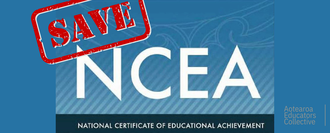
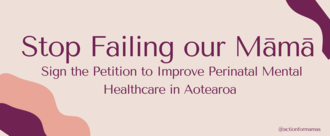
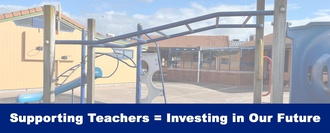
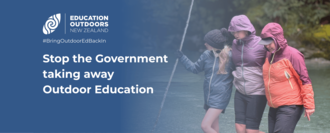.png)
.PNG)

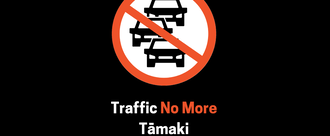.png)


